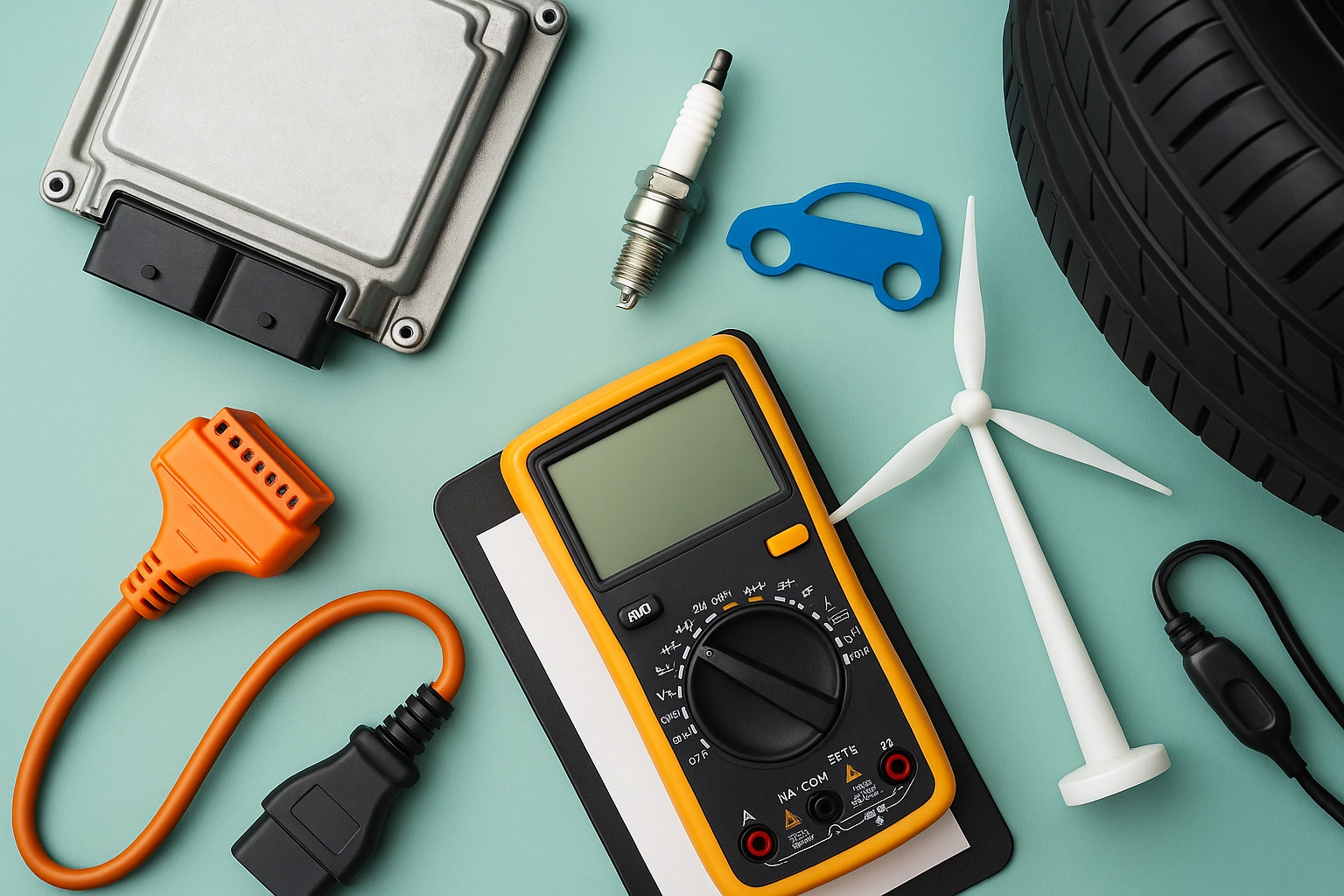ISO 17409 EV On Board Charger Safety Test
The ISO 17409 standard is a critical benchmark for ensuring the safety and reliability of on-board chargers used in electric vehicles (EVs) and hybrid vehicles. This test is essential to verify that these devices meet stringent safety requirements set forth by international standards.
On-board chargers are integral components of EV systems, responsible for converting alternating current (AC) from a charging station into direct current (DC) suitable for the vehicle's battery pack. The reliability and safety of this conversion process is paramount to prevent electrical hazards and ensure consumer confidence in electric mobility solutions.
The test per ISO 17409 involves several key procedures designed to simulate real-world conditions under which on-board chargers operate. These include:
- Testing for input power quality, including voltage and frequency variations typical of utility grids.
- Evaluating the charger's ability to handle overcurrent, overvoltage, and short-circuit faults without damage or degradation.
- Assessing insulation resistance under various conditions to ensure there is no risk of electrical shock.
- Checking for electromagnetic compatibility (EMC) to prevent interference with other electronic devices in the vehicle.
The test protocol requires specialized equipment such as power supply simulators, oscilloscopes, and insulation resistance testers. Compliance officers and R&D engineers must ensure that all equipment used is calibrated according to ISO standards prior to testing.
Real-world implications of this test are significant. By adhering to the stringent requirements outlined in ISO 17409, manufacturers can enhance their reputation for producing safe, reliable products. This not only protects consumers from potential risks but also helps companies navigate regulatory landscapes more effectively. The results of this testing contribute to the overall safety certification process, which is a crucial step before any EV or hybrid vehicle can be sold commercially.
Additionally, the outcomes of ISO 17409 tests are valuable for quality managers and procurement teams who need to verify that suppliers meet high standards. This ensures that only top-tier components find their way into final products, thereby maintaining the integrity and safety of electric vehicles.
Why It Matters
The importance of ISO 17409 testing cannot be overstated in the context of automotive innovation. As global markets increasingly adopt electric and hybrid technologies, ensuring that all components function safely and reliably is a non-negotiable requirement.
One key reason why this test matters is its role in mitigating risks associated with electrical systems within vehicles. Overcurrents or overvoltages can lead to overheating, fires, or even explosions if not properly managed by the on-board charger. By conducting ISO 17409 tests, manufacturers and quality assurance teams can identify potential vulnerabilities early in the development process.
Another critical aspect is regulatory compliance. Many countries have implemented strict regulations governing the safety of electric vehicle components. Meeting these standards through rigorous testing demonstrates a commitment to adhering to international best practices. This not only simplifies market entry but also fosters trust among consumers and stakeholders.
Furthermore, ISO 17409 helps in enhancing brand reputation by showcasing a company’s dedication to product safety and innovation. Consumers are more likely to choose vehicles from brands that prioritize safety testing over cost-cutting measures. This can translate into higher sales volumes and customer loyalty.
In terms of operational efficiency, the test also plays a vital role. By identifying issues early, manufacturers can reduce costly recalls and warranty claims post-launch. A robust testing process ensures that only high-quality on-board chargers reach consumers, minimizing downtime and service costs in the field.
Applied Standards
| Standard | Description |
|---|---|
| ISO 17409:2013 | This standard specifies requirements and test procedures for the safety of on-board chargers used in electric vehicles. |
| IEC 61558-4 | Covers electromagnetic compatibility aspects relevant to the operation of on-board chargers. |
| ASTM G103 | Provides guidelines for accelerated life testing, which can be used in conjunction with ISO 17409 to assess long-term reliability. |
| Standard | Description |
|---|---|
| EN 61010-1 | Aims to ensure that all test instruments used in the ISO 17409 process are safe for use by trained personnel. |
| IEC 62196-3 | Focuses on the communication protocols between the charging station and the vehicle, which indirectly impacts safety during the charging process. |
The combination of these standards ensures a holistic approach to testing, covering not just electrical safety but also broader aspects like EMC and operational compatibility. This comprehensive testing regime is essential for maintaining high standards in automotive manufacturing.
Eurolab Advantages
At Eurolab, we pride ourselves on providing world-class services that meet the highest international standards. Our expertise in ISO 17409 testing is complemented by state-of-the-art facilities and a team of highly qualified professionals.
We offer a range of advantages that make us the preferred choice for automotive manufacturers seeking to ensure the safety and reliability of their on-board chargers:
- Accurate Calibration: Our instruments are regularly recalibrated according to ISO standards, ensuring precise measurements.
- Comprehensive Testing: We provide a full suite of tests required by ISO 17409 and other relevant standards.
- Expertise and Experience: Our team has extensive experience in automotive testing and understands the nuances of electric vehicle technology.
- Turnkey Solutions: From initial consultation to final reporting, we offer end-to-end services tailored to your needs.
- Fast Turnaround Times: We understand the importance of timely results and strive to deliver reports within agreed timelines.
- Customized Reporting: Our reports are detailed and customized to meet your specific requirements, providing actionable insights for further development or production.
By partnering with Eurolab, you can be confident that your on-board chargers will undergo thorough testing, ensuring they meet the strictest safety standards. This not only protects your brand but also ensures compliance with regulatory requirements across different markets.





